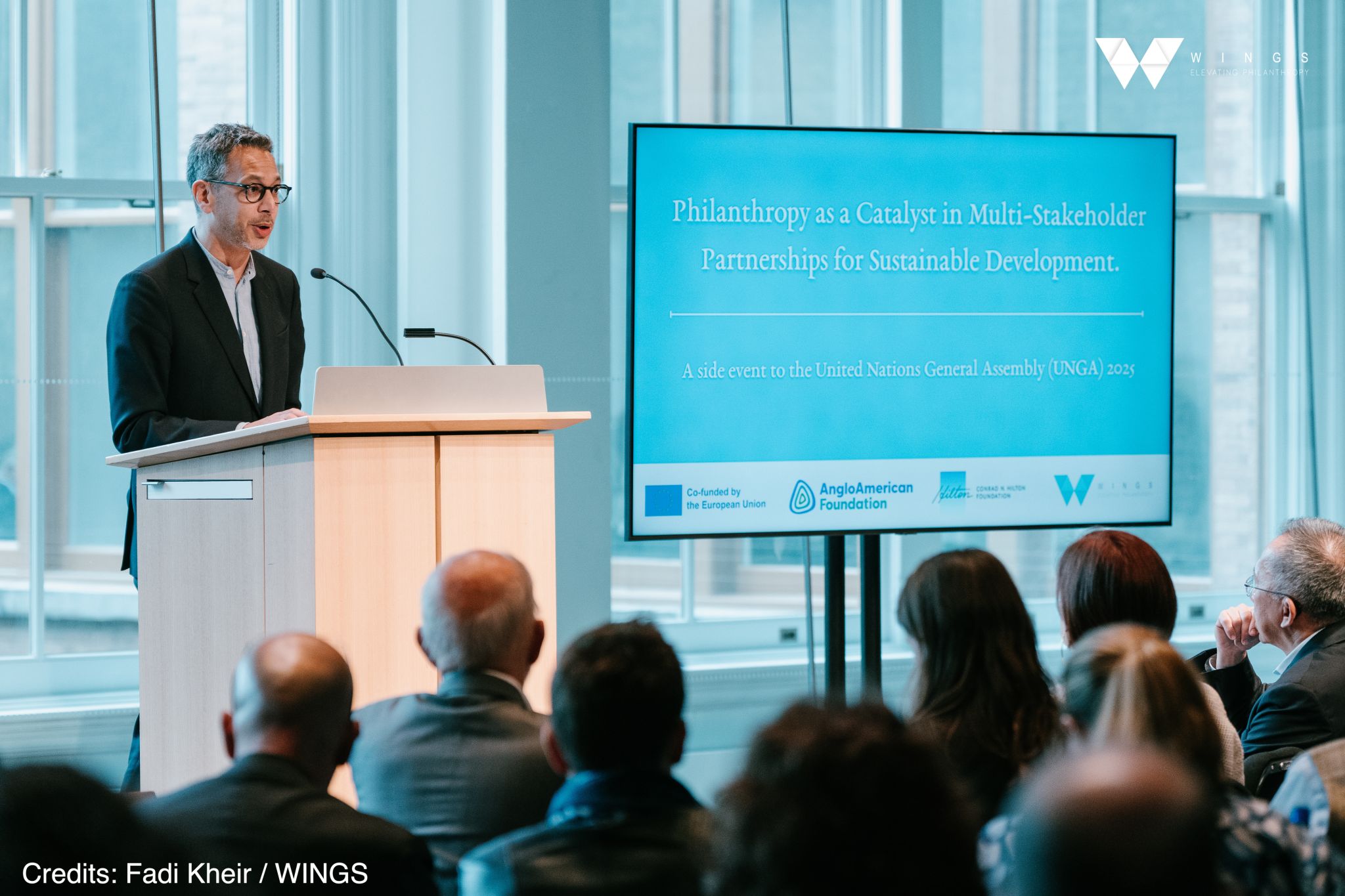“It’s 2025, Guys: Time for Philanthropy to Put Its Money Where Its Mouth Is”
At UNGA 2025, WINGS, together with co-sponsors the Conrad N. Hilton Foundation, the Anglo American Foundation, and the European Union, hosted the event “Philanthropy as a Catalyst in Multi-Stakeholder Partnerships for Sustainable Development.” The gathering
Michael Mapstone’s remarks
From listening to conversations and discussions throughout the day and throughout the week. The next step is clear- how do we take this conversation into action? What will we do differently? I, and I think probably like many of you, have been at many events and many conversations like this since Busan in 2011, repeating familiar refrains about partnerships, collaboration, unlocking capital.
It’s 2025, guys.
The world’s changed. We need to move, and we need to move quick. So let’s be honest.
Communities don’t need any more talk from us. They need philanthropy to act. They need us to put our money where our mouth is. They need capital that moves at the speed of their ideas. And they need us to trust that they understand their challenges and that they have the solutions better than we ever could.
And they need us to stop building walls. Walls of excuses that slow the flow of funds. Walls that keep communities at arm’s length. And walls of outdated reporting and needless delay.
We’ve got a real opportunity. Yes, we’ve got a lot of challenges, but amongst the challenges and chaos, there’s opportunity. Not just because the old models are failing and cracks are showing in the global systems, but because there’s energy and an appetite for change.
I’ve been in lots of conversations this week and today where it’s been a bit of a doom and gloom, to be honest, about contraction, about ODA cuts, the USA context.
But my experience over the past nine months, if I stand in Johannesburg or Lima or Manila, you don’t hear so much doom and gloom. You hear urgency, you hear ingenuity, hustle, and opportunity.
People are testing ideas, they’re building enterprises, and they’re reshaping their communities in real time. The question isn’t about whether we’re going to move our capital, it’s about whether we’re going to follow their lead and work with them and match that pace. Now it’s not just about, there’s a lot of conversation here about localisation.
Now this is central to our strategy at the Anglo American Foundation, but it’s not about just moving money to where it needs to be. It’s about actually how do we invest in work that shifts systems and builds ecosystems to back or have the potential to back the people already driving change.
Yes, that does mean funding local – it means funding flexible, long-term, and patient – but more importantly, it means investing in local ecosystems to promote and protect civil society, to unlock domestic capital, and support the work that is often more impactful than ours.
It’s messy, it’s slow, sometimes political, and sometimes unforgiving. Our role is not just to stick with it, it is, dare I say it, to be catalytic. So we believe this, we believe philanthropy has to change, and we actually have a choice to change.
We’re not here to politely fill gaps at the margins, we’re here to back and enable ideas, and we’re here to fall in love with problems, and fall in love with the organisations that have the solutions to those problems. We’re here for the long term, to collaborate behind those solutions. We’re here to support the ecosystem builders, who are building the scaffolding that lets the community thrive.
The tangible things for us to do:
How do we build ecosystems and not dependencies?
How do we nurture enabling environments for local philanthropy to thrive? And that’s not just a bog standard philanthropy, looking at impact investing, institutional philanthropy, corporate philanthropy, as well as just regular public giving.
How do we put back solutions that grow organically?
How do we become true partners and not patrons?
And how do we celebrate contribution, and not chase attribution?
Do we have the answers? Perfect playbook, a wonderful, beautiful theory of change? No, sorry.
But we, and I hope many of you, are willing to try something, because we have no choice at the moment.
There is urgency, you have to try, learn, iterate, and try again. And I’ll pass over to you. Thank you.

